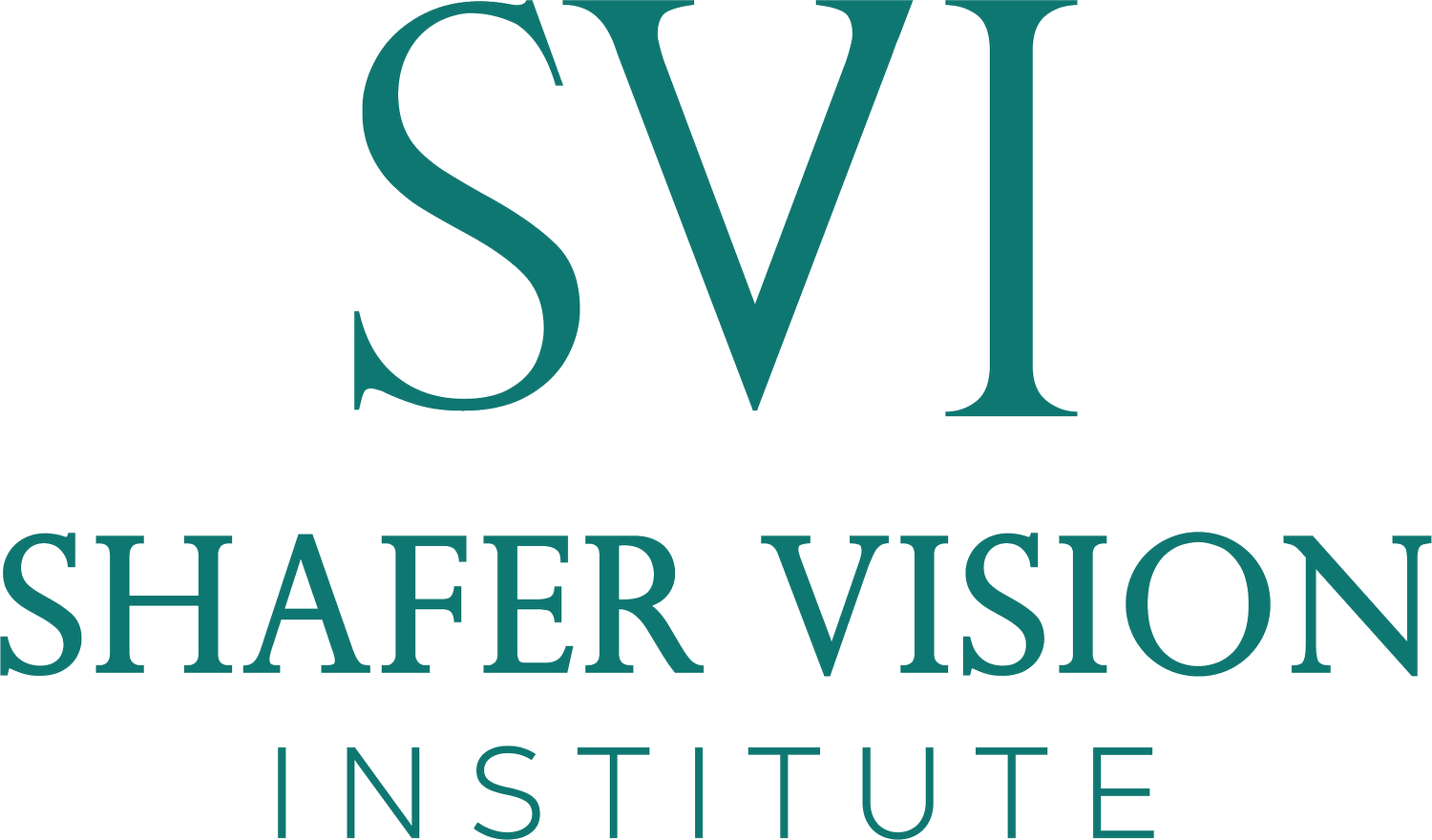
PRK Philadelphia
Your Sight, Our Passion
Providing the highest quality PRK experience for patients from Montgomery, Bucks, Chester, and Delaware Counties. Easy access from Horsham, Plymouth Meeting, Fort Washington, Collegeville, King of Prussia, Philadelphia, Dresher, Blue Bell, Doylestown, Gladwyne, Bryn Mawr, Villanova, Devon, and Berwyn.

PRK at SVI
Embarking on the path to clear vision through Photorefractive keratectomy, or PRK, is a life-changing decision, and we couldn't be more excited for you! At Shafer Vision Institute, we are dedicated to ensuring you feel comfortable and well-informed about your options. Together with our skilled and compassionate refractive surgeon, Dr. Shafer, we'll explore the possibilities for enhancing your vision in the most effective and personalized way. We can’t wait to meet you!
As a prospective PRK patient, you deserve a warm and inviting atmosphere that prioritizes your needs and addresses your concerns. From your initial consultation to the moment your PRK procedure is complete, our team at Shafer Vision Institute will be by your side to guide you through this transformative journey.
Remember, investing in your vision is one of the best decisions you can make. So, take a deep breath, relax, and allow us to be your trusted partner in achieving the crystal-clear vision you've always desired.
Experience Flap-Free Freedom From Glasses
Ease Your Mind With PRK
Concerned about having a flap created during LASIK? PRK offers a flap-free solution that will settle your fears for decades to come. Dr. Shafer is so passionate about PRK that he had it on his own eyes!
See What You Can Save
Open Your Eyes, Not Your Bank Account
See how much you could save with the PRK cost calculator below!

“I am free!! No more glasses. And the best part: I can carry my toddler without fear of him poking me in the eye and disrupting the flap. I am so glad I went with PRK!”

Frequently Asked Questions for PRK
-
Individuals with thinner corneas may not have sufficient corneal tissue for the creation of a LASIK flap, making PRK a more suitable option. Additionally, PRK may be a better choice for those involved in high-contact sports or occupations, as there is no risk of flap-related complications. Furthermore, patients with certain corneal irregularities or dry eye syndrome could also benefit from PRK, as it avoids the potential exacerbation of these conditions that can sometimes occur with LASIK.
-
You may be an ideal candidate for PRK if you are at least 20 years old, have a stable prescription, and have a healthy cornea. A thorough evaluation with our expert team will help determine if PRK or another vision correction procedure is best suited for your needs.
-
At SVI, we provide transparent, all-inclusive pricing for PRK, which includes all pre-operative exams, the procedure itself, and post-operative care. Please contact our office for the most up-to-date pricing information.
-
No, PRK is generally a painless procedure. We use anesthetic eye drops to numb your eyes before the surgery, and most patients experience only mild pressure during the procedure. However, during the post-operative period it is very common to have discomfort for the first 4 days after the procedure. Typically, days 2-3 are the most uncomfortable. After that, the pain will improve, and your vision will slowly improve afterwards.
-
The PRK procedure itself typically takes less than 10 minutes per eye. The laser treatment for reshaping the cornea and correcting your vision usually only takes a few seconds, depending on your prescription and the amount of correction needed.
-
The recovery after PRK is longer and more uncomfortable than LASIK. Typically, your eyes will be uncomfortable for the first 3-4 days after the procedure. During the procedure, we create a large abrasion on the surface of your eye. To help it heal more comfortably, we place a bandage contact lens that is removed on day 4 after then procedure. Once the lens is removed, the vision starts to clear. Most people can drive 1 week after the procedure, but the vision does not become crisp for at least 1 month. The vision continues to improve over the first 6 months.
-
As with any surgical procedure, there are potential risks and complications associated with PRK. However, PRK is considered to be a safe and well-studied procedure with a high success rate. During your consultation, our team will discuss the potential risks and benefits to help you make an informed decision.
-
Our advanced lasers are engineered to accommodate and counteract any involuntary movements. In case of a sudden cough or sneeze, the PRK lasers will momentarily halt and seamlessly resume right where they stopped. Rest assured, there's no cause for worry.
-
If PRK is not the best option for you, SVI offers a range of alternative vision correction procedures, such as LASIK, SMILE, ICLs, and Refractive Lens Exchange. Our team will help you find the most suitable solution for your unique needs.
-
Most insurance plans do not cover PRK, as it is typically considered an elective procedure. However, you may be able to use your Health Savings Account (HSA) or Flexible Spending Account (FSA) to cover the cost of PRK. We recommend checking with your insurance provider for details on your coverage.
-
The results of PRK are permanent for most patients. However, as you age, you may experience age-related vision changes, such as presbyopia or cataracts, which can affect your vision. If needed, additional procedures or treatments can be performed to maintain your clear vision.
-
To schedule a PRK consultation at Shafer Vision Institute, simply contact our office by phone or through our website. Our friendly staff will assist you in finding a convenient appointment time and provide you with any necessary information before your visit.
Flap-Free Laser Vision Correction
All of the Benefit, Less of the Risk
Schedule your free PRK consultation now

Refractive Surgery at SVI
LASIK
The most commonly performed form of refractive surgery, LASIK involves creation of a flap on the cornea by a laser and then reshaping the cornea underneath. LASIK can treat nearsightedness, farsightedness, and astigmatism.
PRK
For patients who are not candidates for LASIK due to thin corneas, irregular shapes to the cornea, dryness, or high risk activities such as martial arts, PRK is a great option. This is the option Dr. Shafer chose for himself!
EVO ICL
For patients who want the absolute best visual quality while leaving the cornea unaltered, the EVO ICL is a fantastic solution. The implantable collamer lens (ICL) is implanted into the eye and rapidly corrects high levels of nearsightedness and astigmatism.
RLE
After age 40, the lens inside of the eye becomes dysfunctional. Refractive lens exchange is ideally suited for patients over the age of 40 who are looking to experience the full range of vision correction again.




